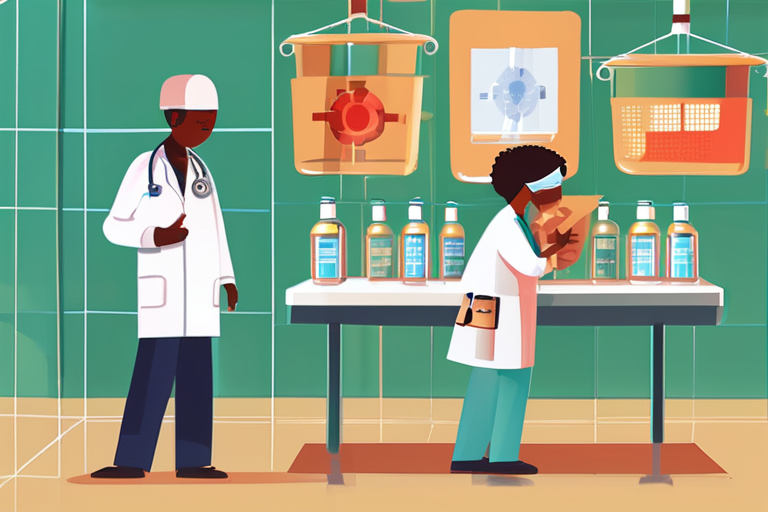Breaking News: Rare Infection on Penis Raises Concerns
A 57-year-old man in Ireland has been hospitalized with a rare and puzzling infection on his penis, which may be linked to his work with dead animals. The man, who had received a kidney transplant 15 years prior, presented to a hospital in Dublin with a week-long history of redness, swelling, and pain in his penis, accompanied by a fever. Initial blood work suggested an infection, but standard antibiotics failed to improve his condition. Further investigation revealed a more complex case, prompting consultation with infectious disease doctors.
According to an article published in ASM Case Reports, the man's symptoms worsened despite initial treatment, leading doctors to suspect a more serious infection. A thorough review of his case revealed that he had been working with dead animals in the three months preceding his hospitalization, which may have contributed to the development of the infection. However, the exact origin of the infection remains unclear.
The man's immunosuppressed state, resulting from his kidney transplant, made him more susceptible to infections. His doctors immediately began treating him with a combination of antibiotics and antifungal medications, which are commonly used to treat rare infections. The patient's condition is currently being closely monitored, and his treatment plan is being adjusted as needed.
Experts warn that individuals with weakened immune systems, such as those with organ transplants, are at increased risk of developing rare and opportunistic infections. "Immunosuppressed patients are more vulnerable to infections that can be easily treated in healthy individuals," says Dr. Sarah Johnson, an infectious disease specialist. "It's essential for these patients to maintain good hygiene practices and seek medical attention promptly if they experience any unusual symptoms."
As the investigation into this rare infection continues, healthcare professionals are emphasizing the importance of vigilance in detecting and treating opportunistic infections. "This case highlights the need for healthcare providers to be aware of the potential risks associated with working with dead animals and to take necessary precautions to prevent infections," says Dr. Johnson.
The patient's recovery is being closely monitored, and his treatment plan will be adjusted as needed. As more information becomes available, it is clear that this rare infection serves as a reminder of the importance of maintaining good hygiene practices and seeking medical attention promptly if unusual symptoms occur.



























Share & Engage Share
Share this article